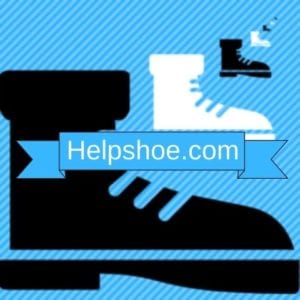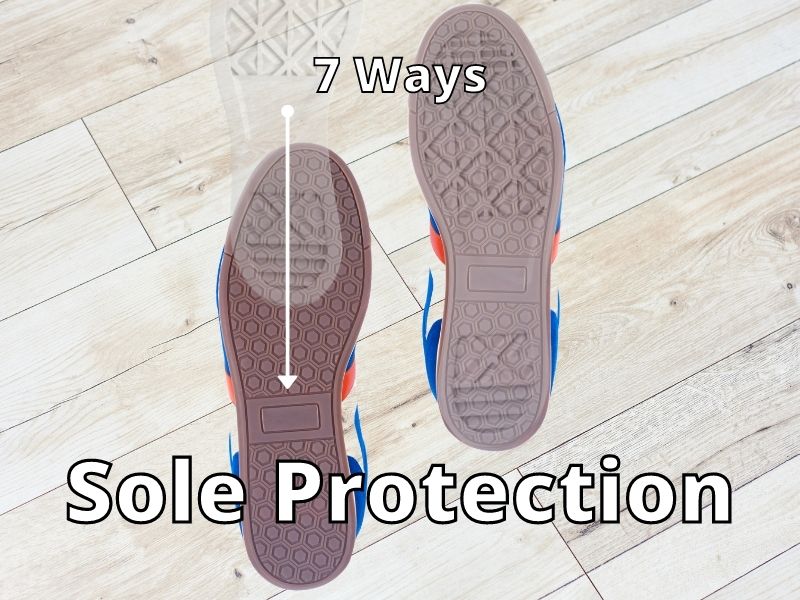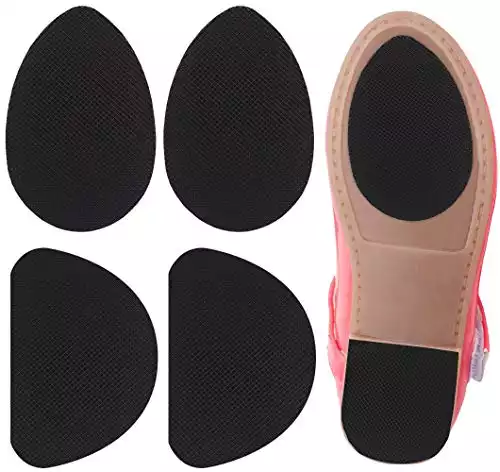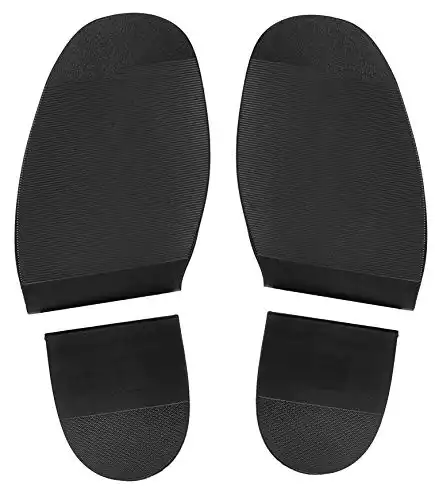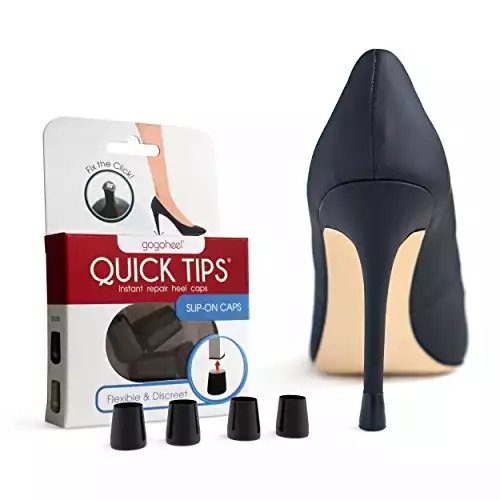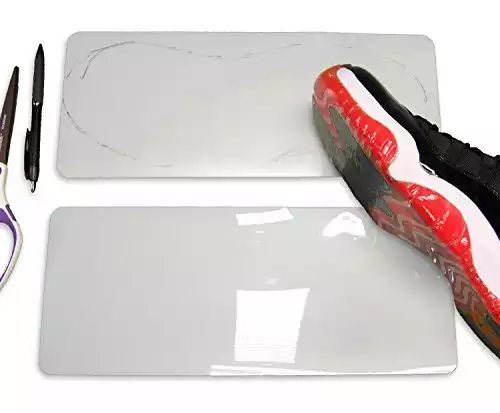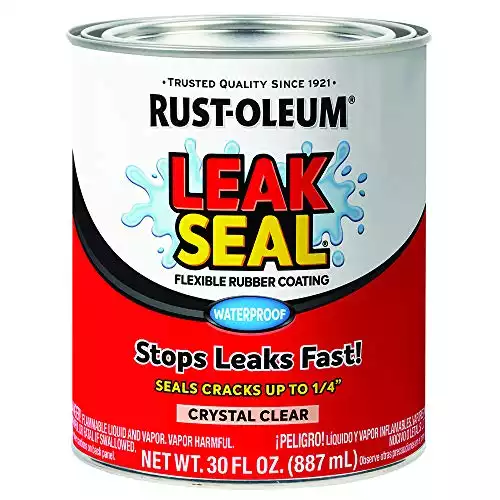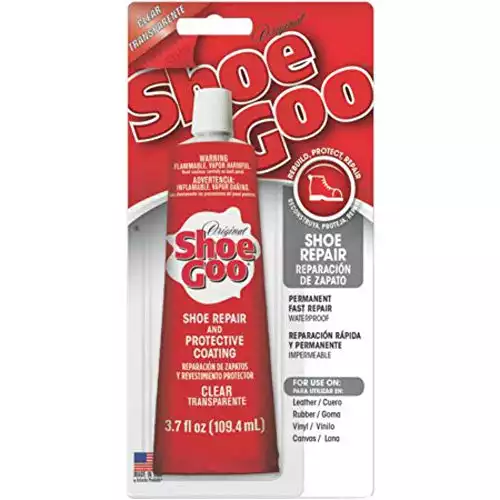Have you ever had shoes that you wish you could wear, but the soles have worn out? That happened to me with my last pair of shoes I liked a lot. Unfortunately, I couldn’t just buy another pair of soles that would work on my shoes. But if you have newer shoes, there are some ways to protect the sole.
To protect your shoes, you can apply products to the bottom of the sole to help them stay clean and last longer. You have several ways to protect your shoe soles, including these seven:
- Anti-slip pads on the bottom of your shoes.
- Rubber sole repair or replacement for the bottom of your shoes.
- Heel guards for high heels
- Clear Vinyl Sole Sticker Protectors
- Rubberized coating
- Clear Shoe Goo for repairs and protection
- Clean Your Soles
I haven’t ever used a sole protector, but if I bought new shoes that I needed to stay looking perfect, I would be interested in trying the vinyl sticker sole protector because they aren’t noticeable and are easy to apply. Let’s find out more about what options are available and how to use them.
Protect Your Shoe Soles
Shoe soles are mainly made of rubber, leather, polyurethane (PU), polyvinyl chloride (PVC), and ethylene-vinyl acetate (EVA). Each of these has different properties that make them unique, but they all wear down over time.
This chart helps you see how long each type lasts in comparison to each other. Unfortunately, not all shoe brands list the type of materials their shoes are made of, and many bands also mix materials into a proprietary compound.
So, you may need to do some research to find a clearer answer to learn what the shoe sole is made of.
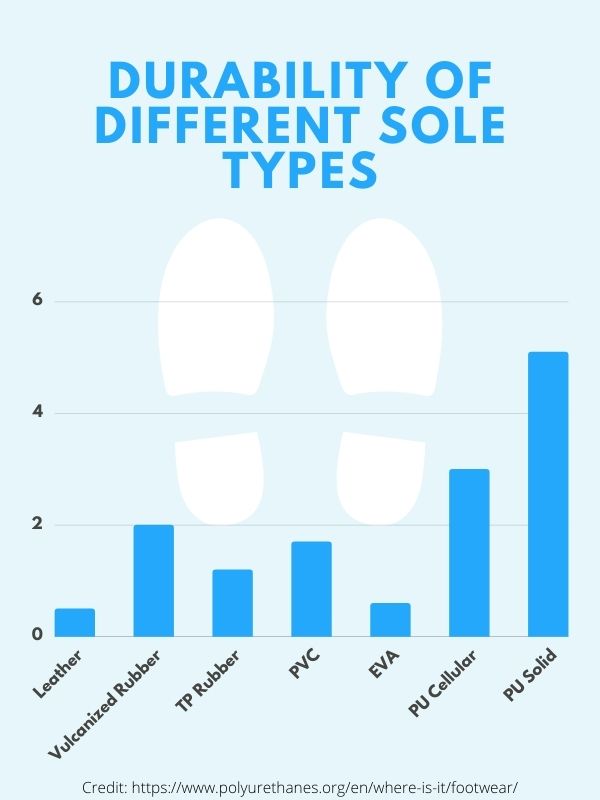
Choosing a Sole Protector
For each of the ways to protect your shoes, some may apply more to some shoes while others are won’t work well. Your soles are used in many different conditions. If you use your shoes in rugged conditions, you’ll want something very strong to coat the bottom of your shoe.
If you’re walking on smooth, flat surfaces all day, you can use something that doesn’t need to be as strong.
To add life to your shoes and keep them looking their best, you’ll need to decide which way you want to protect them. Keep in mind that some methods require a little work while others require more time and patience.
1. Anti-Slip Pads
AD
An anti-slip pad can be helpful for your leather shoes or any shoe with a slipper bottom. They help prevent wear on the two areas that are most prone to show wear: the heel and the ball of the foot.
These are usually made out of rubber or silicon. They are self-adhesive, so they work just like a sticker. Many types of shoes can be used for them, although you may need to cut them to fit onto the back and front of the shoe sole.
An anti-slip pad can be helpful for your leather shoes or any shoe with a slipper bottom. They help prevent wear on the two areas that are most prone to show wear: the heel and the ball of the foot.
These are usually made out of rubber or silicon. They are self-adhesive, so they work just like a sticker. Many types of shoes can be used for them, although you may need to cut them to fit onto the back and front of the shoe sole.
2. Rubber Sole Repair or Replacements
AD
Rubber sole bottoms used for the repair of heels and soles are a good choice for those with leather or rubber shoe bottoms.
They can provide an extra layer of protection on top of your soles. They are usually made of real rubber and are good for those who need a firm grip on the ground as they walk.
These will require measuring, cutting, and some type of shoe glue. If you are willing to put in the time, these can work well to make your shoe bottoms look new again.
If you’re looking for something that may cover a bigger area, you can try these rubber shoe sole sheets. (Amazon.com)
3. Heel Guards for High Heels
AD
Heel caps are used for protecting the heels of women’s high-heel shoes. These are a good choice for those trying to repair their heels and prevent future heel damage.
This is a good option for those who love wearing their shoe, yet their heels have worn down.
These don’t require any work because you usually just need to slip them on the end of the heel.
Most customers say they like them because they look good and make their heels look new.
4. Clear Vinyl Sole Sticker Protectors
AD
Vinyl sheet protectors are clear and self-adhesive. They are good for protecting the entire bottom of your shoes. These are a good choice for those with new shoes that they’ve wanted to keep looking like new.
This is a good option if you don’t wear your shoes very often and keep them in good condition so you can wear them to display your shoe style.
These sheets require some work in order to cover your shoe bottom well. You need to make sure the shoe bottoms are very clean and that you are very careful when applying the sheet.
It works best on smoother surface shoe bottoms, but not all bottoms are good with adhesives. Try using some duct tape on the bottom of your shoe and see how easily it comes off.
5. Rubberized Coating
AD
Rubberized sprays or liquids can be helpful on many surfaces to help protect and seal. While they might not be best for shoes, some people have tried them out and say that they can work, although it may not stay too well on some shoe bottoms.
The thickness of the spray or coat you apply can also make a difference. It’s best to do a test on a clean section of your shoe bottom and see if it works. The rubberized coating likely needs lots of grooves to hold on strongly.
Applying the spray or liquid can be messy, so be prepared to tape off any areas of the shoe you want to remain clean.
6. Clear Shoe Goo for Repairs and Protection
AD
I have used Shoo Goo on a couple of occasions, and it does a pretty good job adhering to the sole and leveling wore down areas.
The part that I found the most difficult was applying it with the correct thickness and not getting it everywhere. It’s a good idea to use a container to squeeze out some of the goo, some tape to prevent glue on unwanted areas, and then use your tools to place the Goo on your shoe.
When it hardens, I’ve found that it feels very rubber-like and is mostly clear. It then seems very strong and holds on to the shoe bottom well.
7. Clean Your Soles
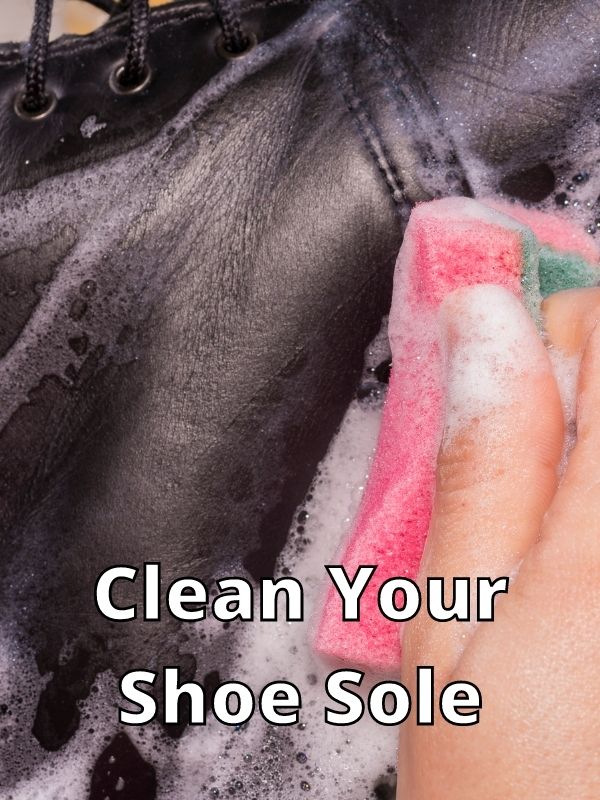
The last piece of advice I would give is to clean your shoe bottoms whenever you step into anything that might be corrosive, oily, salt-like, or gasoline. Depending on your shoe sole and the substance that is used, it could start to degrade or dry out your shoe sole.
Shoe soles can be washed with soap and water. With a bit of work, you can get your shoe bottoms to look fairly new.
If you’ve stepped in something that you think needs to be cleaned off, try washing your shoe bottom with soap and water first. If it doesn’t work, you can try baking soda and water. Rinse with water and let your shoe dry.
Most of the time, shoe soles don’t need to be cleaned. They can withstand a lot of walking on most streets and sidewalks. Repeated exposure to some elements might start to cause problems, though, especially with rubber.
So, be aware of what your shoes are exposed to on a frequent basis to prevent problems from occurring.
Using some of the products listed above can be difficult and time-consuming. They aren’t always practical, but they might be worth it in some circumstances. Decide whether it makes sense for your circumstances to protect your soles or just clean them when needed.
Thanks for visiting Helpshoe.com
